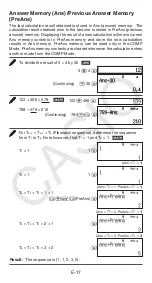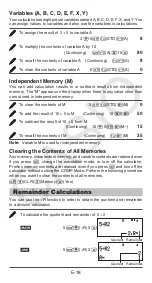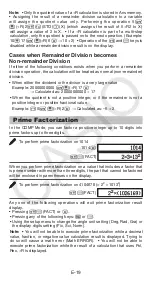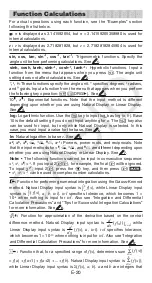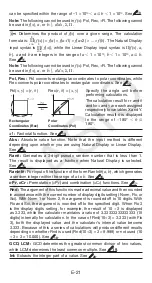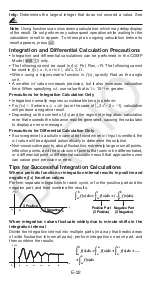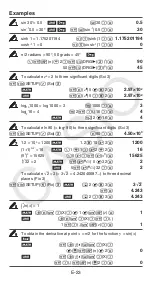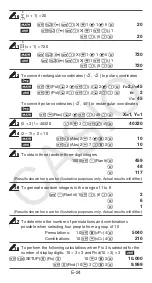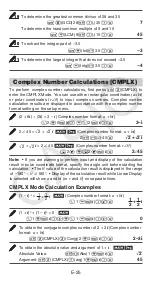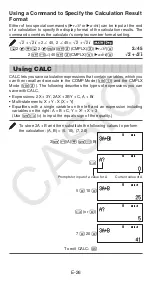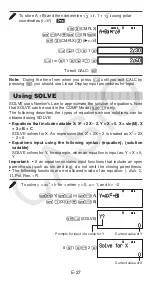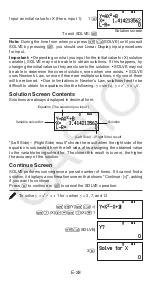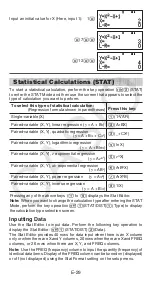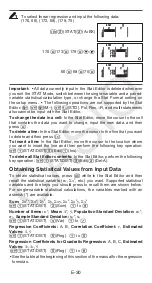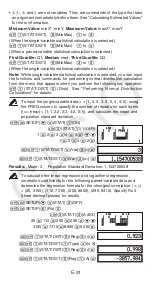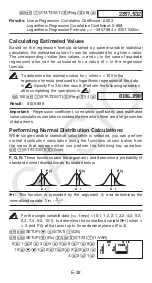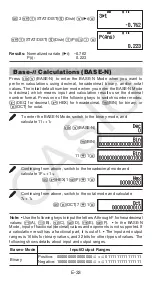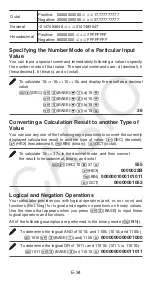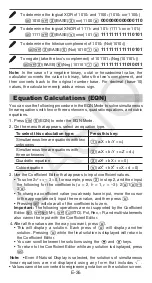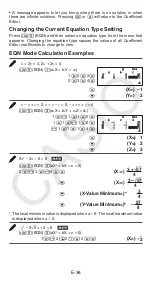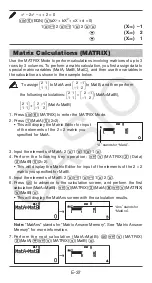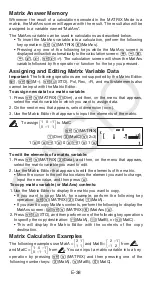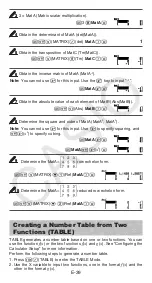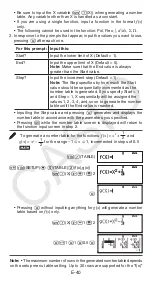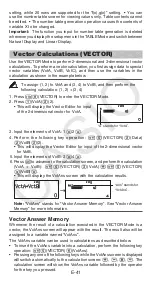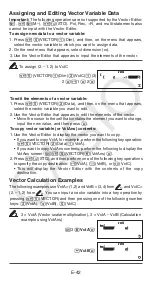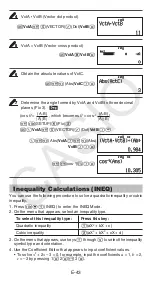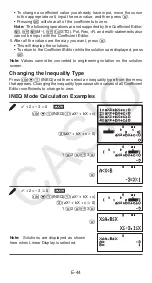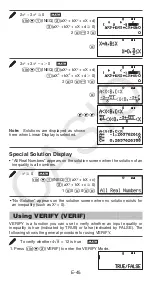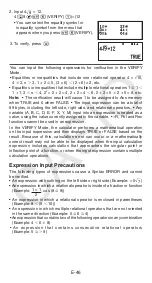
E-31
•
m
,
m
1
,
m
2
and
n
are not variables. They are commands of the type that take
an argument immediately before them. See “Calculating Estimated Values”
for more information.
Minimum Value:
minX*, minY,
Maximum Value:
maxX*, maxY
1
1
(STAT/DIST)
6
(MinMax)
1
to
2
(When the single-variable statistical calculation is selected.)
1
1
(STAT/DIST)
6
(MinMax)
1
to
4
(When a paired-variable statistical calculation is selected.)
First Quartile:
Q1,
Median:
med,
Third Quartile:
Q3
1
1
(STAT/DIST)
6
(MinMax)
3
to
5
(When the single-variable statistical calculation is selected.)
Note:
While single-variable statistical calculation is selected, you can input
the functions and commands for performing normal distribution calculation
from the menu that appears when you perform the following key operation:
1
1
(STAT/DIST)
5
(Distr). See “Performing Normal Distribution
Calculations” for details.
To input the single-variable data
x
= {1, 2, 2, 3, 3, 3, 4, 4, 5}, using
the FREQ column to specify the number of repeats for each items
({
x
n
; freq
n
} = {1;1, 2;2, 3;3, 4;2, 5;1}), and calculate the mean and
population standard deviation.
1N
(SETUP)
c
4
(STAT)
1
(ON)
N
3
(STAT)
1
(1-VAR)
1
=
2
=
3
=
4
=
5
=
ce
1
=
2
=
3
=
2
=
A1
1
(STAT/DIST)
4
(Var)
2
(
o
)
=
A1
1
(STAT/DIST)
4
(Var)
3
(
σ
x
)
=
Results:
Mean: 3 Population Standard Deviation: 1.154700538
To calculate the linear regression and logarithmic regression
correlation coefficients for the following paired-variable data and
determine the regression formula for the strongest correlation: (
x
,
y
)
= (20, 3150), (110, 7310), (200, 8800), (290, 9310). Specify Fix 3
(three decimal places) for results.
1N
(SETUP)
c
4
(STAT)
2
(OFF)
1N
(SETUP)
6
(Fix)
3
N
3
(STAT)
2
(A+BX)
20
=
110
=
200
=
290
=
ce
3150
=
7310
=
8800
=
9310
=
A1
1
(STAT/DIST)
5
(Reg)
3
(r)
=
A1
1
(STAT/DIST)
1
(Type)
4
(In X)
A1
1
(STAT/DIST)
5
(Reg)
3
(r)
=
A1
1
(STAT/DIST)
5
(Reg)
1
(A)
=
2
2
STAT
STAT
3
3
STAT
FIX
STAT
FIX

